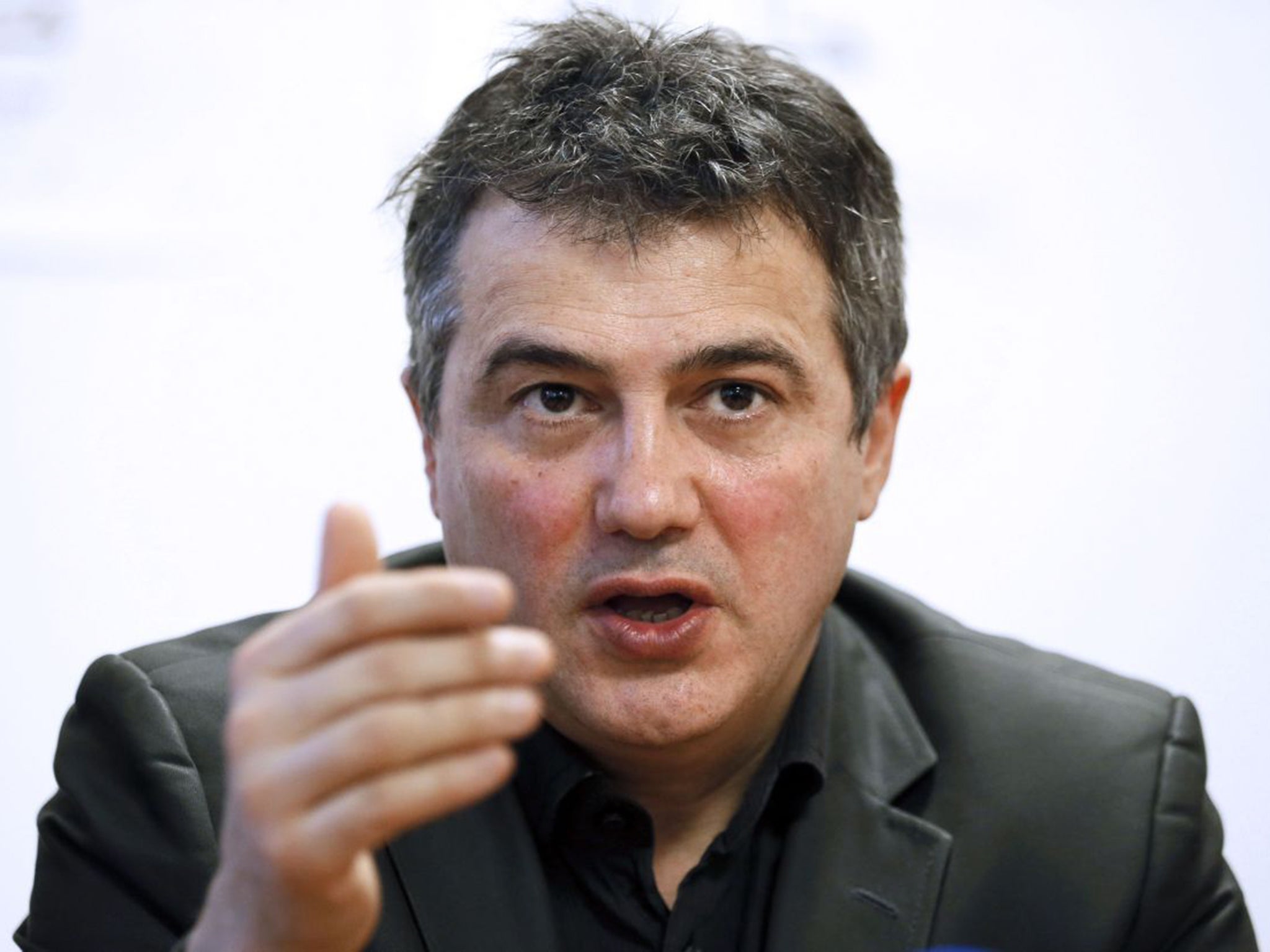‘Charlie Hebdo’ loses star cartoonist and writer as infighting takes its toll on magazine
Another leading Charlie Hebdo dissident, Zineb El Rhazoui, spoke of a “deep malaise” at the magazine

Your support helps us to tell the story
From reproductive rights to climate change to Big Tech, The Independent is on the ground when the story is developing. Whether it's investigating the financials of Elon Musk's pro-Trump PAC or producing our latest documentary, 'The A Word', which shines a light on the American women fighting for reproductive rights, we know how important it is to parse out the facts from the messaging.
At such a critical moment in US history, we need reporters on the ground. Your donation allows us to keep sending journalists to speak to both sides of the story.
The Independent is trusted by Americans across the entire political spectrum. And unlike many other quality news outlets, we choose not to lock Americans out of our reporting and analysis with paywalls. We believe quality journalism should be available to everyone, paid for by those who can afford it.
Your support makes all the difference.Immediately after the jihadist assault on Charlie Hebdo, the satirical magazine’s future seemed secure despite the murder of some of its leading figures. An outpouring of support was matched by an outpouring of cash from around the world.
But now, all is not well. Two of its famous names are leaving amid claims of a “deep malaise” over the notoriety and unaccustomed wealth brought by the attack on the publication’s Paris office in January.
Patrick Pelloux, 52, a celebrity doctor and long-time Charlie Hebdo columnist, announced at the weekend that he would leave the magazine by the end of the year. “Something has come to an end. Something is finished,” he told a student radio station. “We are survivors, but we are not survivors. Part of us ended with the killings.”
Earlier, one of the magazine’s best-known surviving cartoonists, Luz, confirmed that he would be leaving Charlie Hebdo this week.
Both men were leading figures in a “revolt” by Charlie Hebdo staff last spring against the allegedly authoritarian style of the post-massacre management and what they described as the “poison of the millions”. In an open letter, they complained that the estimated €30m (£22m) which had been showered on the left-wing, anti-religious magazine in sympathetic donations, subscriptions and extra sales could destroy its character and soul.
Neither referred to this issue in their resignation statements but another leading Charlie Hebdo dissident, Zineb El Rhazoui, spoke of a “deep malaise” at the magazine. “These two departures are a sign that relations are bad with the new management,” she said. “Patrick was one the people who had been in [the management’s] sights for months.”
She said that there were continuing disputes over money, over the magazine’s editorial line and the top-down, rather than collegiate, approach of the new management.
On 7 January, two brothers, Said and Cherif Kouachi, attacked the Charlie Hebdo offices in central Paris and killed 11 people – cartoonists, journalists, editors, visitors and a police bodyguard. They murdered another police officer in the street nearby.
They said they were protesting against the publication of images depicting the prophet Mohamed. The fiercely secular Charlie Hebdo had frequently published cartoons representing Mohamed – usually portraying him as a reasonable person who despaired of his radical followers.
Those murdered included the cartoonist-editor of the magazine, Charb, and two of its best-known cartoonists. Mr Pelloux, who had an office next door, was one of the first to arrive to help the injured and dying.
Those wounded included Laurent Sourisseau, known as Riss, the present editor and the owner of 40 per cent of the magazine. In an interview with Le Monde, he implied that the resignations were partly motivated by fear of further Islamist attacks.
“After all that has happened, it is understandable that people want to take a step back and protect themselves,” he said. “It has been a very violent year, both at the time of the attacks and afterwards.”
In earlier interviews, Mr Sourisseau said it had been difficult to replace his murdered colleagues because many cartoonists were now “scared” of working for Charlie Hebdo.
Long-time ‘Charlie Hebdo’ columnist Patrick Pelloux said part of the magazine ended with the killings
Join our commenting forum
Join thought-provoking conversations, follow other Independent readers and see their replies
Comments